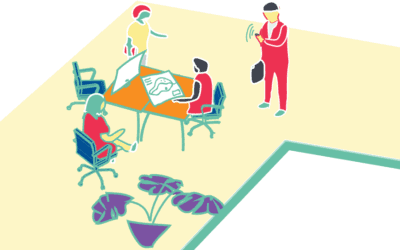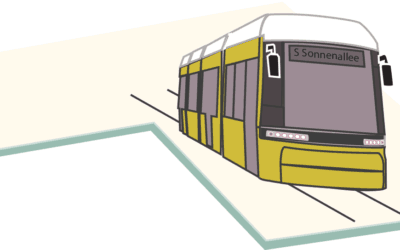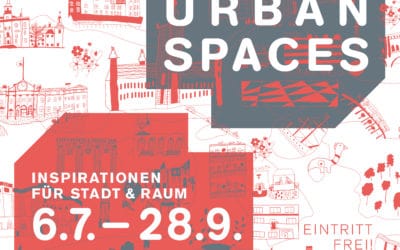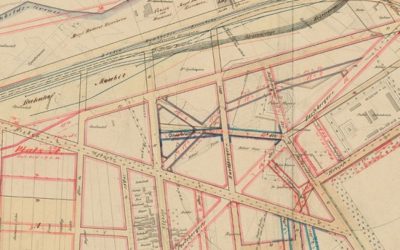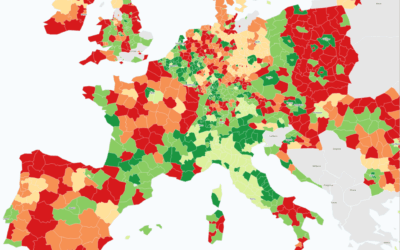Perhaps a defining aspect of the current moment is the playout between the contradictory forces of rising fascism and of social movements defying exasperating precarity, racism and capitalism. While globalisation is mostly associated with extractionist corporate cherry-picking across geographies, in recent years scholars and activists are working the global for localised struggles. They rely on sharing reflexive understandings of elements, systems and networks of oppression to labour contextualised strategies and tactics for countering hegemony and exploitation on intellectual and practical levels. Given the contemporary polycrises – economic, social, political, environmental and corporeal – we are implored as academics to find and test ways to support the emergence of new socio-political spaces and paradigms that inform the tailoring of progressive urban change.
From this perspective, this international symposium focuses on the one hand on the disjuncture between theoretical knowledge on the complexities of socio-spatial urban realities and the multiple layers (re)producing inequalities; and on the other hand on the sharing and communication of this knowledge across disciplinary, professional and literacy boundaries. In particular, we want to zoom in on mappings and visualisations as a tool that has the potential to give rise to alternative, pluralistic understandings of the urban (against the homogenisation of places as well as of interpretations) and link works from within and beyond academia. In this respect, we want to investigate whether and how maps (in a broad understanding of the term) can contribute to a more dynamic understanding of resource flows, social relations, power structures and their interlinkages; and consequently explore whether and how maps can make a difference in tackling urban socio-environmental crises.
This symposium aims to create a space for conversation between knowledge produced in the Global South and that in the Global North. It therefore pivots thematically on two key aspects that globally underline the current moment of vulnerability and struggles against it: Intersectionality and Climate Change Adaptation (details below). We see this transdisciplinary symposium not only as a space for sharing knowledge but equally as a working space for creating ‘new‘ knowledge. Hence, it is structured in a Workshop format where inputs by contributors feed into working groups that tackle specific questions under the two outlined themes. The working groups will extend over the two days of the symposium and cross through plenary and plenum sessions.
upcoming Events
GIS | WS 2018/19
B15.1A Dozent: Thomas Hengsbach LV-Nr.: 06361300 L12 Umfang: 2 SWS / 3 ECTS Veranstaltungstyp: Integrierte LV Blockseminar 08.10. – 12.10.2018 täglich 10:00 – 16:00h Raum: EB 431D (großer Lehrpool)
Wissenschaftliches Arbeiten | WS 2018/19
B14 Dozent: Andreas Brück LV-Nr.: 06369701 L10 Umfang: 2 SWS / 3 ECTS Veranstaltungstyp: Integrierte LV ab 15. November 2018 donnerstags 10:00 – 18:00h Raum: EB 222
Stadträume für alle auf der Sonnenallee! | WS 2018/19
B5 | Bachelor-Auftragsprojekt Dozent: Roland Schröder LV-Nr.: 06369701 L05 Umfang: 8 SWS / 12 ECTS Veranstaltungstyp: Projekt ab 22. Oktober 2018 montags 14:00 – 18:00h Raum: ISR Atelier In der wachsenden Metropole Berlin werden die Anforderungen an den begrenzten…
GIS | WS 2018/19
B15.1A Dozent: Thomas Hengsbach LV-Nr.: 06361300 L12 Umfang: 2 SWS / 3 ECTS Veranstaltungstyp: Integrierte LV Blockseminar 08.10. – 12.10.2018 täglich 10:00 – 16:00h Raum: EB 431D (großer Lehrpool)
Wissenschaftliches Arbeiten | WS 2018/19
B14 Dozent: Andreas Brück LV-Nr.: 06369701 L10 Umfang: 2 SWS / 3 ECTS Veranstaltungstyp: Integrierte LV ab 15. November 2018 donnerstags 10:00 – 18:00h Raum: EB 222
Stadträume für alle auf der Sonnenallee! | WS 2018/19
B5 | Bachelor-Auftragsprojekt Dozent: Roland Schröder LV-Nr.: 06369701 L05 Umfang: 8 SWS / 12 ECTS Veranstaltungstyp: Projekt ab 22. Oktober 2018 montags 14:00 – 18:00h Raum: ISR Atelier In der wachsenden Metropole Berlin werden die Anforderungen an den begrenzten…
closed projects
Nordic Urban Spaces
Jul – Sep 2018
Inspirations for City & Place
Hobrecht’s Berlin – Value & Coming To Be
2014 – 2018
Growth, change, and heritage of Berlin’s urban expansion plan
Smart People & Urban Commoning
2014 – 2016
Symposium „Beware of Smart People“
Geography of New Employment Dynamics
2016 – 2017
Knowledge Economy & its territorial patterns in Europe.
Teaching and Learning as a Counter-Current Process
2012 – 2014
Testing new methods in urban design and communication of planning.
Random Überschrift
Perhaps a defining aspect of the current moment is the playout between the contradictory forces of rising fascism and of social movements defying exasperating precarity, racism and capitalism. While globalisation is mostly associated with extractionist corporate cherry-picking across geographies, in recent years scholars and activists are working the global for localised struggles. They rely on sharing reflexive understandings of elements, systems and networks of oppression to labour contextualised strategies and tactics for countering hegemony and exploitation on intellectual and practical levels. Given the contemporary polycrises – economic, social, political, environmental and corporeal – we are implored as academics to find and test ways to support the emergence of new socio-political spaces and paradigms that inform the tailoring of progressive urban change.
Genauso random Textzeile
From this perspective, this international symposium focuses on the one hand on the disjuncture between theoretical knowledge on the complexities of socio-spatial urban realities and the multiple layers (re)producing inequalities; and on the other hand on the sharing and communication of this knowledge across disciplinary, professional and literacy boundaries. In particular, we want to zoom in on mappings and visualisations as a tool that has the potential to give rise to alternative, pluralistic understandings of the urban (against the homogenisation of places as well as of interpretations) and link works from within and beyond academia. In this respect, we want to investigate whether and how maps (in a broad understanding of the term) can contribute to a more dynamic understanding of resource flows, social relations, power structures and their interlinkages; and consequently explore whether and how maps can make a difference in tackling urban socio-environmental crises.
Das hier ebenfalls: random
This symposium aims to create a space for conversation between knowledge produced in the Global South and that in the Global North. It therefore pivots thematically on two key aspects that globally underline the current moment of vulnerability and struggles against it: Intersectionality and Climate Change Adaptation (details below). We see this transdisciplinary symposium not only as a space for sharing knowledge but equally as a working space for creating ‘new‘ knowledge. Hence, it is structured in a Workshop format where inputs by contributors feed into working groups that tackle specific questions under the two outlined themes. The working groups will extend over the two days of the symposium and cross through plenary and plenum sessions.
